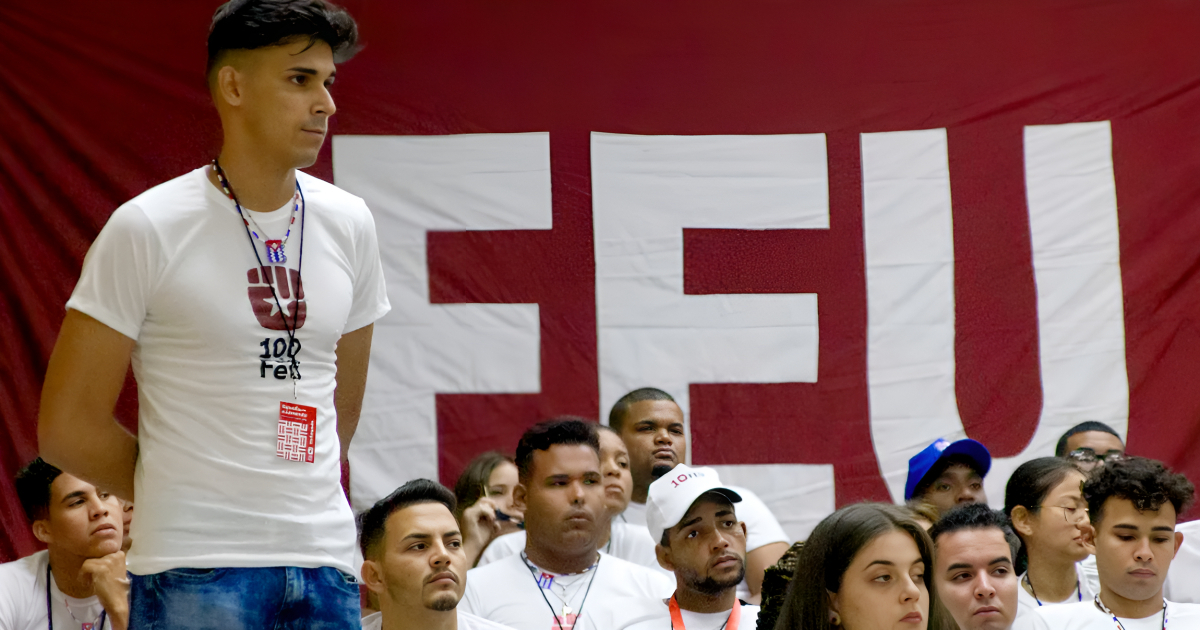The escalating backlash against the price hikes imposed by the Cuban Telecommunications Company (ETECSA) has intensified, reaching a new level of conflict within the student movement itself. On June 3, the Faculty of Philosophy, History, Sociology, and Social Work (FEU-FHS) at the University of Havana issued an unprecedented statement demanding the immediate resignation of Ricardo Rodríguez González, the national president of the Federation of University Students (FEU). They argue that he has failed to adequately represent student interests during this ongoing crisis.
In their announcement, the FEU-FHS criticized Rodríguez González’s approach as "complacent, passive, and lacking critical evaluation" in response to the frustration caused by ETECSA's new pricing, which effectively blocks millions of Cubans from internet access—particularly those who do not receive dollar-based salaries or have relatives abroad to fund their connectivity.
Students also expressed dissatisfaction with the lack of clear responses from company executives following a meeting with university authorities. They demanded a complete reversal of the measures or, at the very least, the removal of the 360 CUP monthly recharge limit.
"Our students choose not to rely on symbolic and non-binding commitments... they choose to engage, participate, and act," emphasized the statement. It also showed solidarity with positions taken by other faculties such as Psychology, Communication, and Mathematics and Computer Science (MATCOM), the latter of which has been on academic strike since Monday.
The Humanities document represented the most direct and organized statement of the current university mobilization. It not only intensified criticism towards ETECSA but also highlighted a legitimacy crisis within the national FEU itself.
Rodríguez González, elected in July 2024 as a member of the Council of State—Cuba's highest institutional body—has become the focus of scrutiny. His role as FEU president and ties to the state apparatus have been questioned by students who believe he has prioritized political loyalty over advocating for those he represents.
On Monday, Rodríguez González appeared on a special televised edition of the Round Table to discuss ETECSA’s measures and their new "offers" for university students. Many interpreted his participation as alignment with the official narrative, focusing on the company’s technical and economic justifications, while ignoring genuine student discontent.
The following day, the FEU president posted a lengthy message on social media defending dialogue "within the Revolution’s legitimate spaces" and accusing "enemies" and "opinion puppets" of manipulating student concerns. "We cannot allow them to steal our history," he wrote, referencing the FEU’s revolutionary legacy—a historical truth manipulated by the regime since 1959. He condemned what he saw as a campaign to destabilize university tranquility.
However, Rodríguez's statements have not quelled dissatisfaction. The Humanities FEU stated that the student mobilization is legitimate, autonomous, and deeply political. They assert it is not merely about internet access but about their right to be heard, represented, and respected.
The conflict extends beyond technological access, morphing into an open struggle for youth representation in Cuba. In a nation where the youth has historically been used as a pillar of political legitimacy, challenging the FEU’s leadership presents an unprecedented challenge.
For the first time in years, students from a flagship faculty like Humanities publicly demand the resignation of their top representative, now also a figure in Miguel Díaz-Canel’s Council of State. As more faculties join in rejecting the price hike and critical voices grow inside and outside the University of Havana, the national FEU leadership faces an unparalleled crisis of authority and trust.
The outcome of this confrontation remains uncertain, but one thing is clear: the new generation of students is ready to defend their rights and voice, even if it means questioning those who have so far spoken on their behalf with words dictated by the totalitarian regime’s power.
Key Questions About the ETECSA Price Hike Protest
What triggered the student protests at the University of Havana?
The protests were triggered by ETECSA's new pricing, which many students believe excludes millions of Cubans from internet access, sparking widespread discontent.
Why is the FEU President's resignation being demanded?
The FEU President's resignation is being demanded because students feel he failed to represent their interests effectively during the crisis and aligned too closely with official rhetoric.
How have other faculties responded to the ETECSA pricing changes?
Other faculties, like Psychology, Communication, and MATCOM, have expressed solidarity with the Humanities faculty's stance, with some even taking actions such as academic strikes.
What are the broader implications of the student protests?
The protests signal a challenge to the political legitimacy of student representation in Cuba, marking an unprecedented pushback against the regime's influence over the youth.
